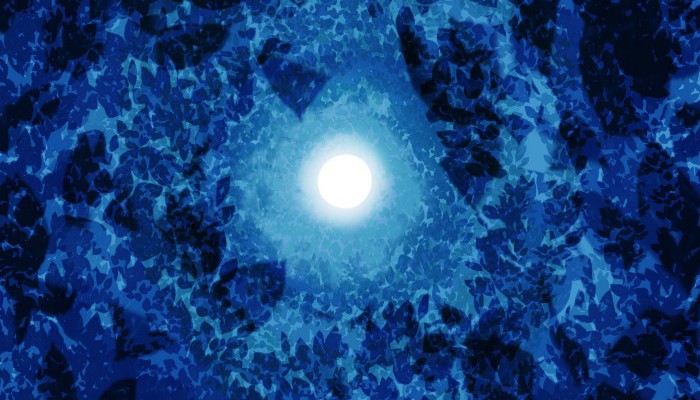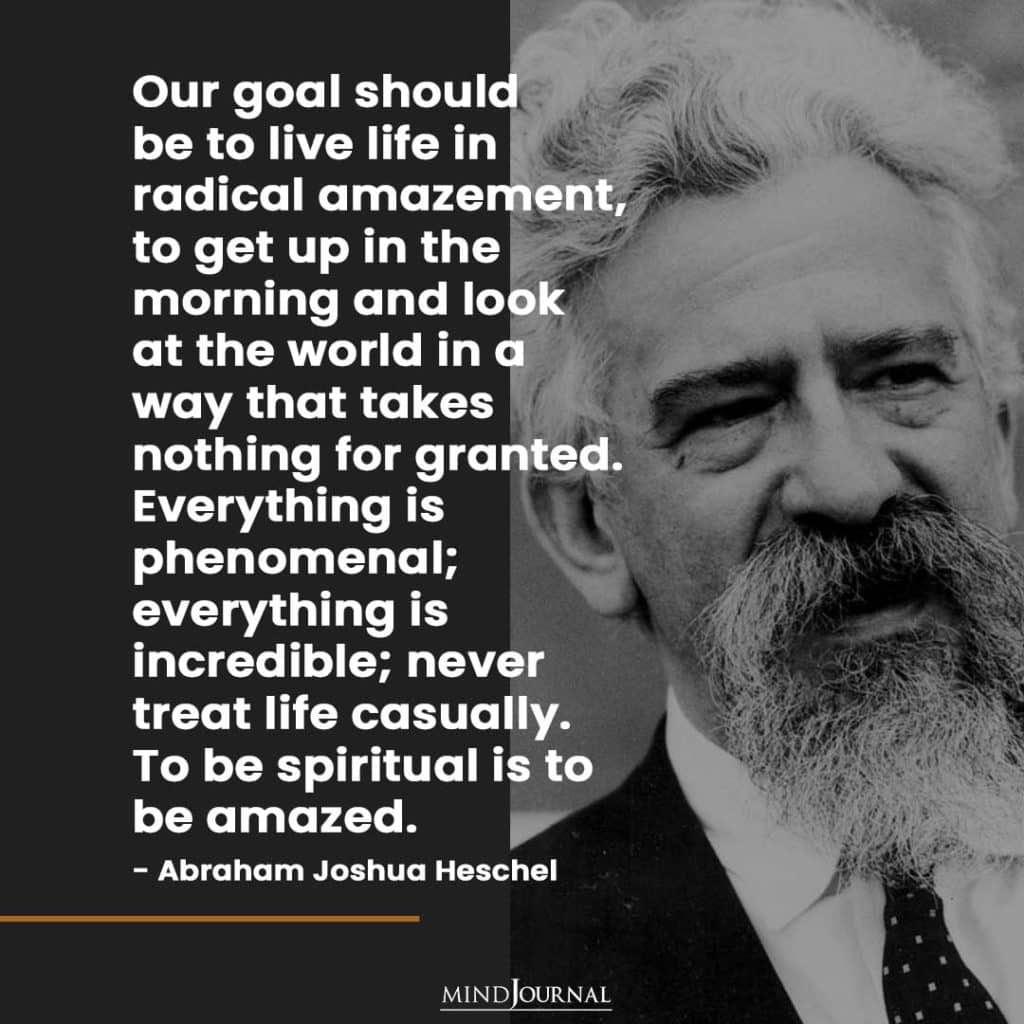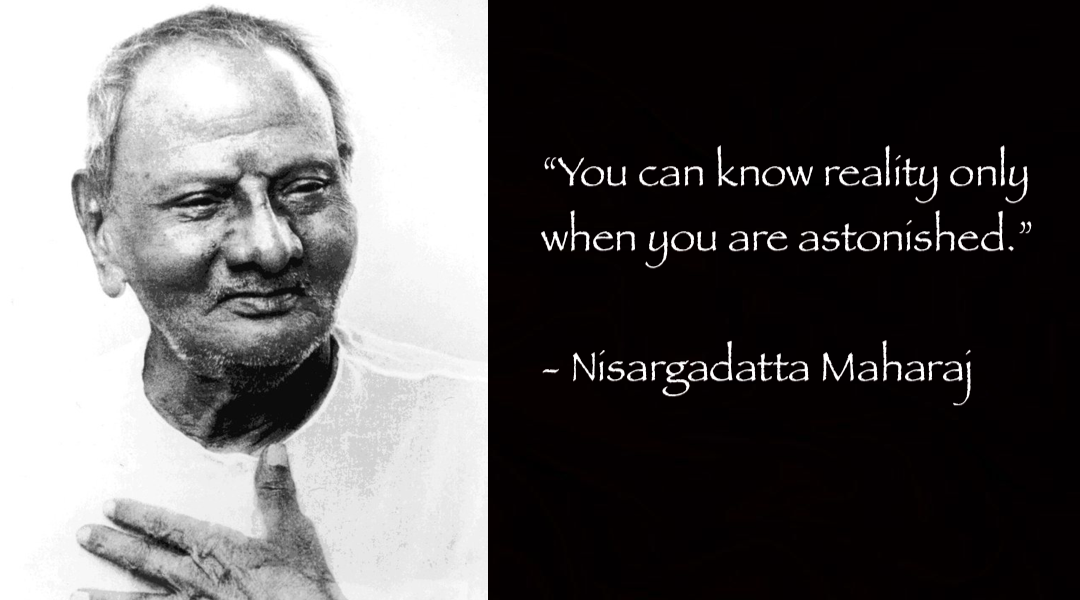How To Live In Wonder

It’s so easy, as the years wind on, to sink into adult-mind. To get crusty and stagnant in our knowing. To lose our sense of wonder.
Wonder comes naturally to a very small child. To fresh eyes, eyes whose vision hasn’t been obscured the cataracts of knowing, the cataracts of “I know what that is, that’s just a flower, I’ve seen lots of those,” wonder is the natural response to the experience of perception on this unfathomably beautiful planet of ours.
But to victims of adult-mind this experience has been lost. Eyes that have been ravaged by adult-mind scan past a million tiny miracles every single day while attention is turned toward stale, repetitive stories in the head about a character called “me” and its various relationships with life.
Even when attention does seem to move outward, adult-mind doesn’t actually perceive life as it really is, life in its explosive majesty. What’s experienced are labels, conceptual constructs placed overtop all the various aspects of this radiant indivisible chaos for linguistic and conversational purposes. If by some lucky happenstance we cast our gaze upon the mysterious cluster of experiences we’ve labeled “tree”, for example, we tend to mostly see that label and all the concepts we’ve come to associate with it, instead of its utterly ineffable wonderment.
This fixation on mental constructs causes us to lead dull, habitual lives devoid of awe, devoid of wonder. The way interest and attention remains wrapped up in lifeless labels and predictable thought patterns keeps us from elevating our minds into the open space where inspiration, spontaneity and agility become possible. It makes us dull, unhappy, rigid, and stupid.

And it’s absolutely wild that that’s the norm for the human condition, because even by the stuffy logic of the plodding adult-mind, it’s an entirely irrational position to hold.
Our own mundane rationality tells us that the world is not as the mental narrator describes it. Zoom the camera out a bit and you see we are the tiniest specks within an incomprehensibly vast universe whose depths we haven’t even scratched the surface of, making an immediately recognizable lie of the significance with which we imbue our mental thought stories. Zoom the camera in and we see that all the “things” to which we affix labels can’t be said to exist with any independent reality at all; it’s just a cloud of swirling, loosely associated particles with no clear boundaries between it and its surroundings, and this includes the very body/brain organism which we self-assuredly refer to as “me”.
Zoom the camera in even further to the level of quantum physics and reality becomes even further removed from how it’s depicted in our mental narratives. The whole thing’s a mystery from top to bottom; at best science can describe how some aspects of matter tend to behave, but science can’t tell you why matter exists, or even what matter fundamentally is.
Then consider how even our senses and cognitive processing of their input is extremely limited. The human eye only perceives about 0.0035 percent of the electromagnetic spectrum. Frequencies outside the 20 Hz to 20 kHz range are completely inaudible to the human ear. Of the information that our extremely limited senses can perceive, our unconscious brain is able to take in and process about 11 million pieces of data per second, of which our conscious mind is able to process only 40 pieces.
And, of course, we still don’t know what the deal is with consciousness itself. The single most significant aspect of human experience, by an infinitely massive margin, is the fact that experience is experienced by any consciousness at all. Science knows hardly anything about this phenomenon or its origins, so it generally gets treated as an irrelevant back burner issue instead of the central mystery of our entire existence. The near-entirety of scientific endeavor completely ignores the very consciousness in which it appears.
Science, at least at this point in its development, is a crude crayon drawing of reality by a toddler who can barely hold the crayon.
And these are just a few of the known unknowns, which in turn are surely dwarfed by the unknown unknowns. What we know we don’t know is probably an itty bitty dot next to yawning chasm of what we don’t know we don’t know.
So we can see just with our mundane adult-mind logic that the knowing which adult-mind takes for granted that it has about reality is entirely beyond its grasp. The “I know what that is, this is this and that is that” labeling and the dusty old How It Is narratives which form the foundation of the adult-mind cognitive life are, to put it charitably, a joke.
And why should it be otherwise? As Terence McKenna put it, where is it writ in adamantine that talking monkeys should be able to understand the universe?
So wonder is not only the most enjoyable response to the human adventure, it’s also the most reasonable.

So how to get there? I guess I’d be kind of a dick if I didn’t conclude with an answer to that question.
People fail to live their lives in awe, wonder, delight and deep peace for the same reason people keep consenting to abusive governments: our lives are ruled by narrative. And the solution to both is the same: intense curiosity about what’s going on underneath the narratives.
The word “wonder” has a few different definitions, one of which is “to be filled with admiration, amazement, or awe, marvel,” and another is “to speculate curiously or be curious about; be curious to know.”
And at first glance these do seem like two completely different notions. One seems to describe a state that somebody experiences, while the other is used to express curiosity about a question, like “I wonder if it will rain?”
But really they’re both pointing to the exact same experience: the experience of not knowing. You wonder if it will rain because, in that moment, you do not know. If you want to, you can take this not-knowing, this wondering, and use it to undo all of your adult-mind habits of perception and cognition, just by actively wondering about them.
Make a constant practice of getting curious about all of the aspects of your experience. Not with the intention of receiving any adult-mind narrative answers, but with the curiosity of a talking monkey who has no ability to understand the universe.
Sea otters are renowned for their playful curiosity. When a sea otter goes and checks out a scuba diver, they’re not doing it with the intention of coming away with any conclusions. No sea otter has ever had the thought, “Ah yes, that’s a human scuba diver wearing a Henderson Thermoprene wetsuit with an 80 CF aluminum dive cylinder.” If a sea otter thinks anything, the closest English translation of its mental flickerings during such curious investigations is probably something like, “Ooh!”
In that simple, childlike “Ooh!” lies the path out of adult-mind. Just playfully explore your sensory input as it shows up, playfully explore your thoughts as they appear, explore the source and perception of those thoughts, explore your sense of yourself, explore your consciousness, not with the intention of getting any answers, but simply to marvel. To wonder. To “Ooh!”
By continually introducing the immediate experience of not-knowing to your operating system, you will undo the stale old perceptual and cognitive habits of the adult-mind that thinks it knows, that thinks it has seen it all, that it has seen any of this before. It’s a skill like any other, and as you improve with practice you will get better at meeting everything for the first time.
Because, in a very real sense, you are meeting everything for the first time. You cannot step into the same river twice. Everything you meet and everyone you meet is in a constant state of change, and so are you. So it makes sense for such encounters to take place in a way that reflects this fact.
And the good news is you can still learn new things, to whatever extent they are useful to you. If anything learning becomes easier, because new information isn’t obstructed by rigid mindsets, old ideas and obsolete cognitive habits. You just hold your “knowledge” lightly and in an open palm, letting your playful sea otter curiosity poke and examine it instead of grasping it and turning it into a rigid doctrine.
So really there’s every reason to begin the exploration of wonder, and no good reason not to. Let wonder guide your entire experience. Let it shape you. Let it become your default position. Let it become your way of life.
https://caityjohnstone.medium.com/how-to-live-in-wonder-88fc8e39c8bb
 TheAltWorld
TheAltWorld 
0 thoughts on “How To Live In Wonder”